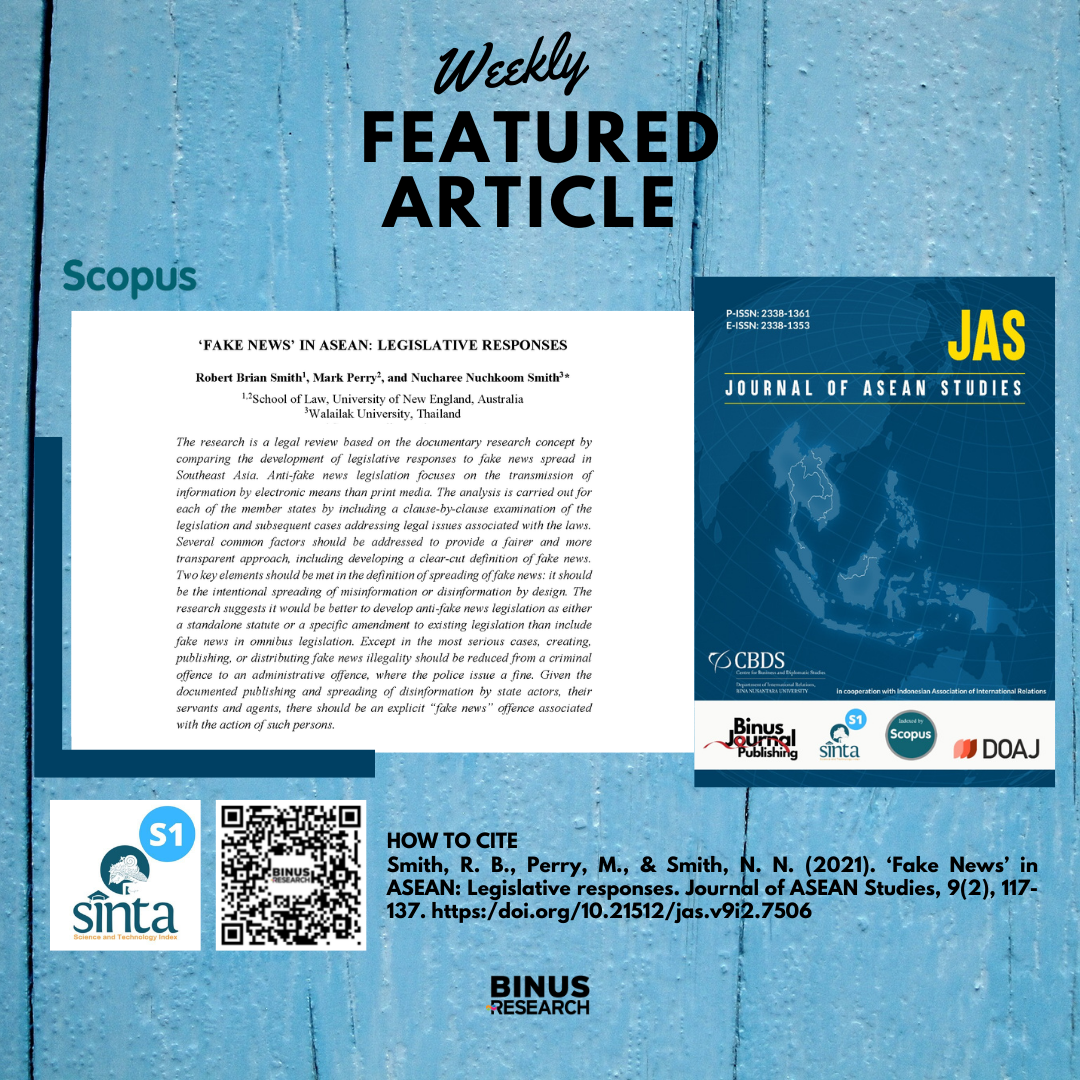Weekly Featured Article

‘Fake News’ in ASEAN: Legislative Responses
Robert Brian Smith (1), Mark Perry (2), and Nucharee Nuchkoom Smith (3)
(1, 2) School of Law, University of New England, Australia
(3) Walailak University, Thailand
The research is a legal review based on the documentary research concept by comparing the development of legislative responses to fake news spread in Southeast Asia. Anti-fake news legislation focuses on the transmission of information by electronic means than print media. The analysis is carried out for each of the member states by including a clause-by-clause examination of the legislation and subsequent cases addressing legal issues associated with the laws. Several common factors should be addressed to provide a fairer and more transparent approach, including developing a clear-cut definition of fake news. Two key elements should be met in the definition of spreading of fake news: it should be the intentional spreading of misinformation or disinformation by design. The research suggests it would be better to develop anti-fake news legislation as either a standalone statute or a specific amendment to existing legislation than include fake news in omnibus legislation. Except in the most serious cases, creating, publishing, or distributing fake news illegality should be reduced from a criminal offence to an administrative offence, where the police issue a fine. Given the documented publishing and spreading of disinformation by state actors, their servants and agents, there should be an explicit “fake news” offence associated with the action of such persons.
Scan the QR Code to read the article on website
https://journal.binus.ac.id/index.php/jas/article/view/7506
__________________________________
ᴅᴀᴛᴀ ᴀɴᴀʟʏᴛɪᴄ ᴀɴᴅ ᴘᴜʙʟɪᴄ ᴇɴɢᴀɢᴇᴍᴇɴᴛ
??? ?????
https://linktr.ee/binusresearch
#journalofaseanstudies #scopus #BINUSUNIVERSITY #BINUSIAN #BINUSRESEARCH #fosteringandempowering


